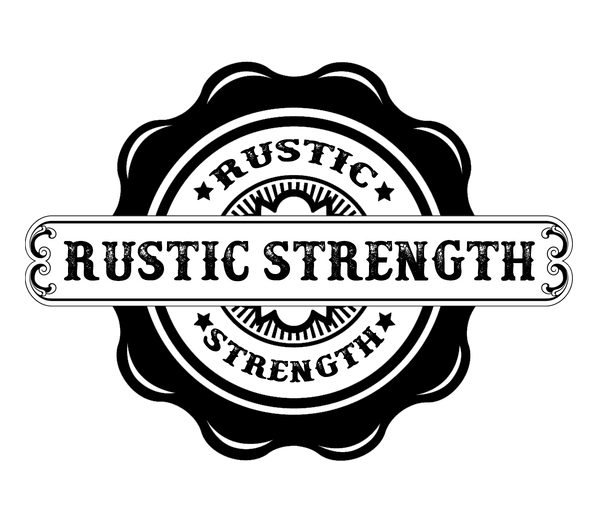Are your "safe to use" cleaning products stored in non-safe containers? Studies show that your fluorinated plastic packaging containers contain PFAS.
From things as simple as pizza boxes or microwavable popcorn bags, up to cleaning products or even pet food bags; it is possible that your consuming and/or dealing with harmful chemicals.
You should always be aware of the materials that go into making products and the containers that hold the products.
A lot of companies will brand themself as sustainable and non-toxic, yet still proceed to package food or cleaning supplies within plastic containers containing PFAS and other harsh chemicals.
PFAS can be found in products such as soda bottles, water bottles, deli-wrap, fast food containers, etc. These can leach harmful chemicals into your food and these types of containers (soda and water bottles) should never be reused.
At Rustic Strength, our commitment to sustainability comes with a lot of research and testing many different types of containers. Our plastic half gallon and gallon jugs are certified food-grade. Meaning they are BPA Free Premium, have HDPE Resin, and are FDA-approved bottles. This makes them optimal to store products in.
Why are PFAS in plastic bad?
PFAS are a family of hundreds of synthetic chemicals used in many consumer and industrial products to make them resistant to water, oil, grease, and stains. These substances have been linked to a range of adverse health effects, such as hormonal disruptions, immune system suppression, and increased risks of certain cancers. When food or cleaning products come into contact with plastic jugs containing PFAS, there is a potential for these harmful chemicals to leach into the contents, leading to ingestion or absorption.
PFAS are persistent in the environment, which means they do not break down easily and can accumulate in water sources, soil, and wildlife, causing long-lasting contamination.
Because of this, for both personal well-being and the environment, Rustic Strength products will always source containers and raw materials without PFAS.
Why do we still use plastic at all?
Some of our containers are made of PCR (post-consumer recycled) material. They also have some virgin plastic but most of it is PCR. We have tested bag-in-box, which we ended up nicknaming trashtainers because they break in transit and have little reuse life. These containers are made with LDPE which is recyclable, but it is hard to find a recycling company that will take them (without needing a truckload of material), so they end up in the landfill. We have tried several different types of collapsible containers and again they break and aren’t easily recycled.
At the 5-gallon size, aluminum dents and isn’t practical, and glass is heavy and needs to be shipped via freight because UPS likes to drop things.
Rustic Strength is a close-loop manufacturing company. This means that we take any of our containers back and we are able clean and reuse them. On our website, there is an option to purchase close-loop containers vs virgin plastic.
Rustic Strength also works with refill companies across the USA. These companies are helping to reduce waste in the landfill by offering healthier type products in refill form.

Summary
Our food-grade plastic containers are designed to be non-toxic, non-porous, and chemical-free. Meaning that harmful PFAS won’t leach out into our products and get inside or on our bodies. Additionally, food-grade plastic is recyclable, making it much more eco-friendly than other plastic containers. It also helps to ensure that our cleaning products will last longer since it is designed to withstand strong concentrations. Lastly, these containers are usually very affordable, making them ideal overall.
Our plastic gallon jugs are a good inclusion for shipping and packaging since they let us reach our customers without damage, and allow our customers to access refilleries with the same containers. With our food-grade plastic, you can give back to the environment by recycling instead of letting the container make its way to a landfill.
We invite you to do your own research!
Scientific journals and articles are the foundation of evidence-based decisions at Rustic Strength. Blogs can provide helpful information. However, if it can not cite scientific articles, its claims stand on little.
PFAS leaching into products- https://news.nd.edu/news/plastic-containers-can-contain-pfas-and-its-getting-into-food/#:~:text=In%20a%20new%20study%20published,packaging%20%E2%80%94%20tested%20positive%20for%20PFAS.
Health effects of PFAS - atsdr.cdc.gov/pfas/health-effects/overview.html
Fluorinated containers contain PFAS - https://news.nd.edu/news/plastic-containers-can-contain-pfas-and-its-getting-into-food/#:~:text=In%20a%20new%20study%20published,packaging%20%E2%80%94%20tested%20positive%20for%20PFAS.
Household/daily items containing chemicals - https://www.popsci.com/earthtalk/article/2008-08/how-safe-tupperware/

